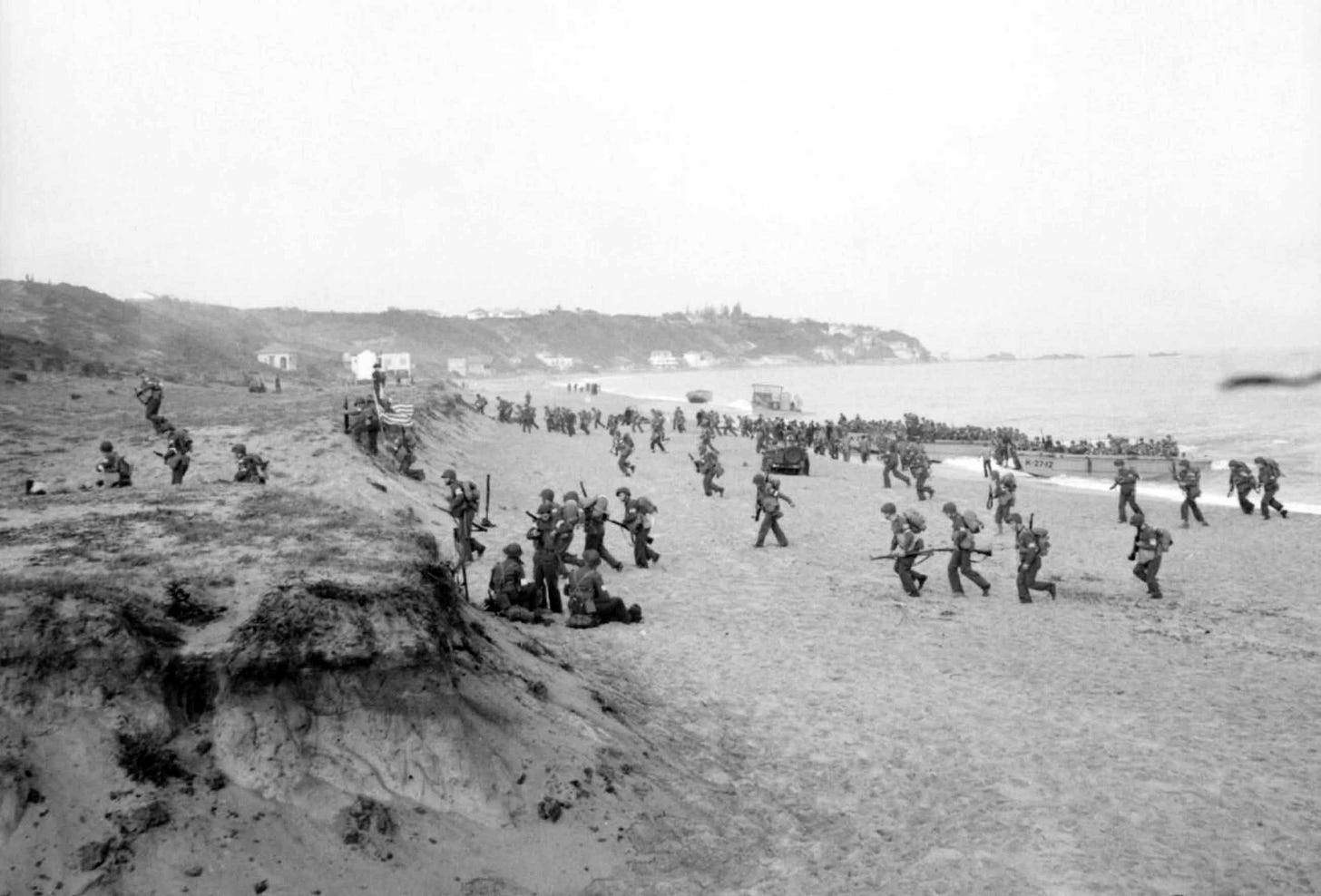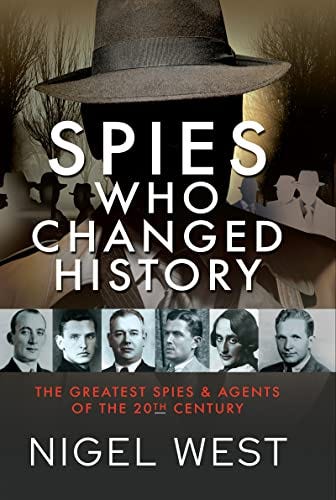Spies Who Changed History
An excerpt from a new book by Nigel West revealing how one German provided Allied Intelligence with a massive breakthrough in December 1942

The following excerpt from Spies Who Changed History: The Greatest Spies and Agents of the 20th Century appears by kind permission of Pen & Sword Books Ltd.
Sometimes just one individual with a change of heart and a shift in loyalties can make a huge difference. Major Richard Wurmann, a senior Abwehr [German military-intelligence] officer, was to make an invaluable and lasting contribution to the Allied cause, even though he struggled with his conscience and was only actively cooperative for a relatively short period of time:
Prior to the Allied invasion of North Africa in November 1942 very little was known about the enemy’s intelligence apparatus, apart from some pre-war manifestations, and the interrogation of low-level spies captured during the ‘invasion summer’ of 1940.
It was understood, mainly through reports from German-occupied territory, that the Germans appeared to run several different, fragmented intelligence and security agencies, among them the Abwehr, the Sicherheitsdienst and the Gestapo, which were largely uncoordinated and often appeared to be in competition with one another.
The development of the cryptographic source ISOS by the Radio Security Service seemed only to muddy an already confusing picture. This situation would change dramatically when, on 8 November 1942, a senior Abwehr officer was captured by British troops near the Tunisian border and indicated his willingness to cooperate with his interrogators.
Major Richard Ernst Heinrich Wurmann, married but in the process of obtaining a legal separation from his wife, told his captors that he hoped for an opportunity to negotiate peace by contacting his former chief, Admiral Wilhelm Canaris. Although the Allies had heard of this mysterious figure, not much was known about him, nor even the structure of his organization, but this lack of detailed information was about to change, thanks to the source whose true identity would be concealed under the codename HARLEQUIN for decades after the end of the war.
Wurmann’s background was carefully documented during a series of inter views conducted throughout December by the Prisoner of War Interrogation Service (MI-19) at the mansion in Kensington Palace Gardens known as the London Cage. The result was a lengthy report which was circulated on 5 January 1943:
...
In 1938 he was transferred to the Abwehr and participated in the 1938/1939 manoeuvres as an officer of the services at Ast Wehrkreis Munster. At the outbreak of war he was mobilized, and served in the Abwehrstelle Koln until May 1940, when he was lent to the Headquarters of the Army Group Von Kleist for the interrogation of British prisoners.
He served in that capacity until Dunkirk, and after the Franco-German Armistice was first sent for three weeks to Paris, then to Biarritz to organize an Abwehrstelle, where he was stationed until November 1941. Details of Biarritz re given above.
From December 1941 until March 1942 he worked in Berlin. Before being transferred to Algiers he was sent to Paris, where he was employed until the end of May 1942. Politically, he represents in its entirety the view of the German General Staff, i.e. that while they are grateful to the Party for having rebuilt the German armed forces, they dislike the excesses committed by the Party.
If they could find a strong enough man amongst the General Staff, they would speedily eject Hitler and his satellites. The man chosen for this part was Brauschitsch, but since his disgrace there is no other strong enough. It is of interest to note that many of the intimate and highly secret details in this report concerning the Abwehr had been furnished by Wurmann despite the fact that he is a major in the German SIS and an officer of many years’ standing.
...
Acceptance by MI5 and SIS of Wurmann’s terms, which included an annual salary of £300 and the occupation of a rent-free flat, began a relationship that, in the end, only lasted some five months, but was to be of immense value to both intelligence agencies. Wurmann’s experience dated back to before the war, and his postings to Berlin, Paris, Italy and Athens gave MI-19 a hitherto unprecedented glimpse into the Abwehr’s innermost secrets.
Of particular interest to his interrogators was the period he spent on the Spanish border supervising the transit of agents destined for England, and his recollection of KO Madrid personalities had the potential of triggering local counter-intelligence operations. Further more, Wurmann remained willing to act as a human encyclopedia, disclosing details of the Abwehr’s relationship with the Spanish personalities.
However, in April 1943 MI5’s Herbert Hart and Dick White took Wurmann out to dinner in London and observed that
HARLEQUIN has an extremely bad conscience. Much of his mental energy appears to be absorbed in persuading himself that he is only acting in the highest interest of the German people by collaborating with us. He is obsessed with the idea of a compromise peace.
...
Wurmann’s conscience would eventually get the better of him, but while he was still in a cooperative mood he provided the key to Allied counter intelligence success. He was able to identify individual officers from (heavily disguised) ISOS reporting, and provide reassurance about Abwehr concerns regarding hostile penetration by double agents, and the lack of assets already in England. When eventually other Abwehr sources became available, such as Erich Vermehren in January 1944, Wurmann adopted the role, although he was unaware of it, of a method of verification.
In March 1943 MI5’s Helenus Milmo referred to the ‘copious intelligence which HARLEQUIN has supplied me to date’ and commented to Charles Stuart, his Section V counterpart in SIS, ‘his general description of the leading personalities of the Abwehr is so clearly correct that I do not really think it stands in need of amplification’. As a peacetime barrister with the reputation of being MI5’s toughest interrogator, Milmo added ‘I have not the slightest doubt that he is being entirely frank.’
As for his motivation, it was noted that Wurmann recalled having attended a conference held at the Hotel des Ambassadeurs in Paris in May 1942 attended by all the Abwehr officers in France where the audience listened to a very candid assessment of the military situation delivered by the Chief of Abteilung Fremde Heer.
‘HARLEQUIN states that, as a result of this lecture, all Abwehr officers realized after the German offensive in the summer of last year had failed, that the war was lost.’
Nigel West is well known for a series of revelatory histories of the Intelligence Services in Britain, in which he has demonstrated an unusual familiarity with official sources. Just published is Spies Who Changed History. In his introduction, West acknowledges that there may be a number of individuals who could claim to be among the ‘Greatest Spies and Agents of the 20th Century’ that are not featured here. Instead, he has chosen fourteen individuals who can now be assessed on the basis of recently declassified material “and can now be seen to have had a very definite influence on the course of events”.
The individuals concerned cover the First World War through to the 1980s and cover investigations and operations run by the MI5, KGB, CIA, FBI and Mossad, so this is a wide-ranging survey. West quotes liberally from declassified documents to support his argument that these were highly valued intelligence assets - at least by the organisations that they were ultimately working for.
This excerpt from Spies Who Changed History: The Greatest Spies and Agents of the 20th Century appears by kind permission of Pen & Sword Books Ltd. Copyright remains with the author.


